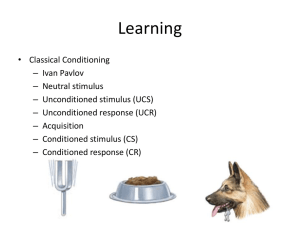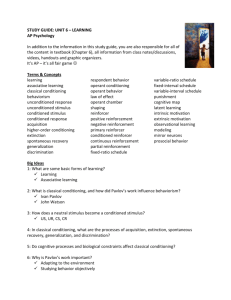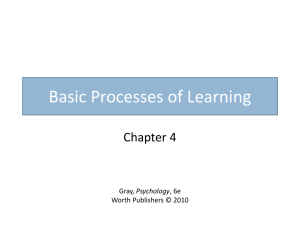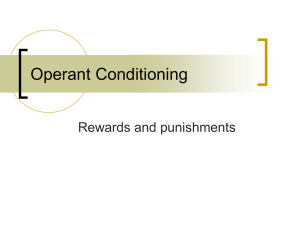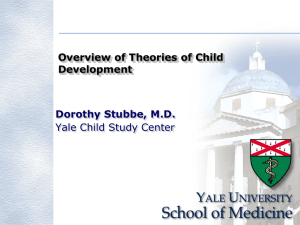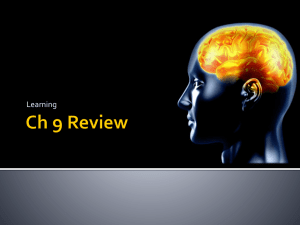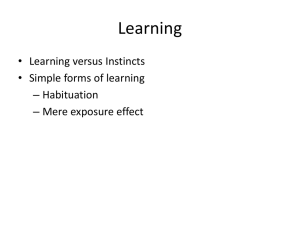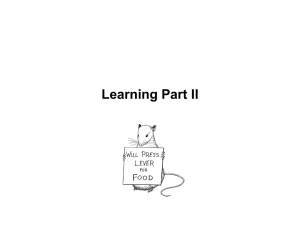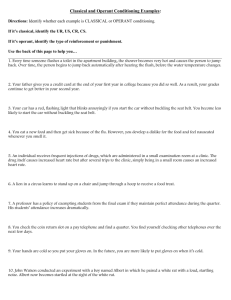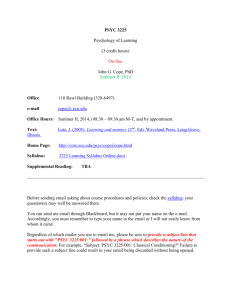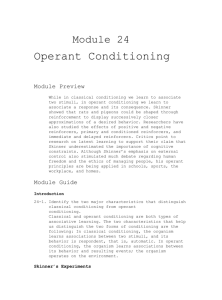Bird: Intro to Psych Name: Psychology: Unit 1 Study Guide Use
advertisement
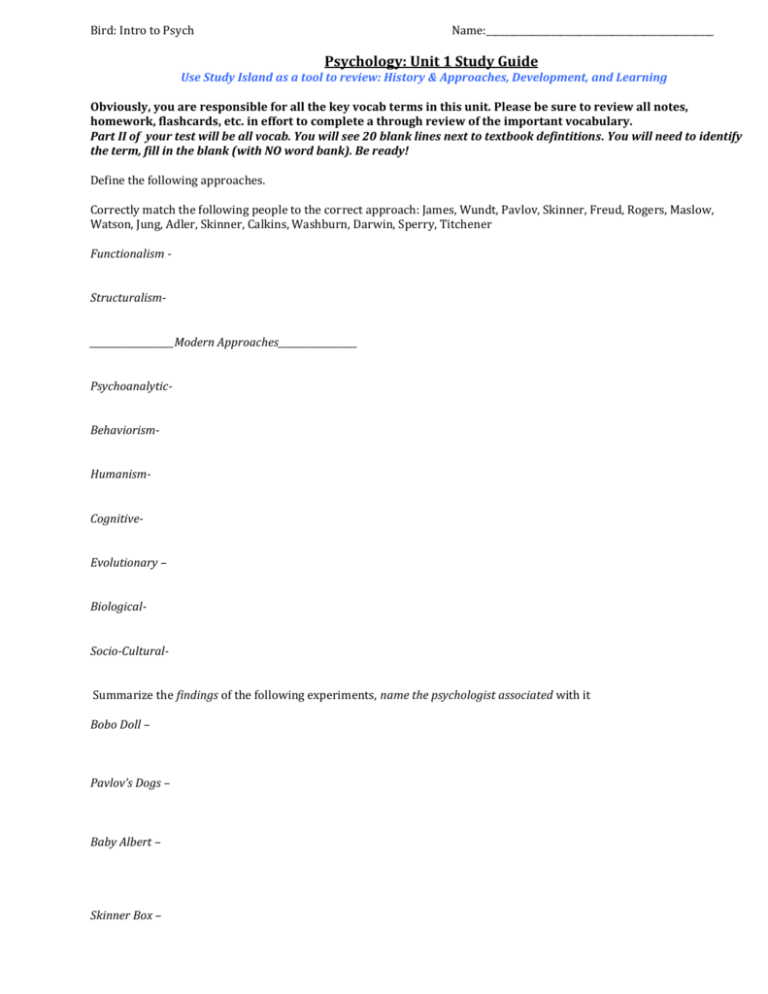
Bird: Intro to Psych Name:_________________________________________________ Psychology: Unit 1 Study Guide Use Study Island as a tool to review: History & Approaches, Development, and Learning Obviously, you are responsible for all the key vocab terms in this unit. Please be sure to review all notes, homework, flashcards, etc. in effort to complete a through review of the important vocabulary. Part II of your test will be all vocab. You will see 20 blank lines next to textbook defintitions. You will need to identify the term, fill in the blank (with NO word bank). Be ready! Define the following approaches. Correctly match the following people to the correct approach: James, Wundt, Pavlov, Skinner, Freud, Rogers, Maslow, Watson, Jung, Adler, Skinner, Calkins, Washburn, Darwin, Sperry, Titchener Functionalism Structuralism__________________Modern Approaches_________________ PsychoanalyticBehaviorismHumanismCognitiveEvolutionary – BiologicalSocio-CulturalSummarize the findings of the following experiments, name the psychologist associated with it Bobo Doll – Pavlov’s Dogs – Baby Albert – Skinner Box – Imprinted Geese – Harlow’s Monkeys – Take some time to review the following specialty fields or “DOMAINs” in psychology and be able to recognize examples of each on the test: Clinical, counseling, community, developmental, experimental, Industrial/Organizational, Educational, Experimental and School. (Look at your cut and paste wkst) 1. Summarize the nature vs. nurture debate. Also give a synonym for both nature and nurture. 2. Explain the difference between cross-sectional studies and longitudinal studies. Which one would be more practical for a graduate student to use in their research and why? 3. What is the difference between applied science and basic science? Considering the many domains in psychology, give two examples of domains that use applied science and one that relies heavily on basic science. 4. What is “conditioning”? Explain the difference between classical conditioning and operant conditioning? 5. Considering Classical Conditioning: be able to identify the UCS, UCR, NS, CS and CR in a given scenario. For example: Alex throws a tennis ball at his brother. His brother winces in pain. Alex begins to pair an alarm sound to the throwing of the tennis ball. Now his brother hears the alarm first and is then immediately pelted with the tennis ball. After several pairings simply the sound of the alarm, with no tennis ball, causes his brother to wince. UCS CS UCR CR NS 6. Considering any given classical conditioning experiment, explain the difference between generalization and discrimination. 7. Considering any given classical conditioning experiment, explain the difference between extinction and spontaneous recovery. 8. Besides classical and operant conditioning, explain one other way we learn? 9. What famous experiments and psychologists can be linked to the following? a) classical conditioning – b) operant conditioning – c) observational learning- 10. Operant Conditioning: Explain the difference between positive reinforcement and negative reinforcement. Give an example of each. 11. Operant Conditioning: Explain the difference between punishment and reinforcement. Give an example of each. 12. Considering operant conditioning and schedules of reinforcement, explain the difference between a fixed ratio and a variable ratio? 13. Considering operant conditioning and schedules of reinforcement, give an example of each a fixed interval and a variable interval? 14. Describe how shaping could be used to train a pigeon to complete a 360 turn when the word “ turn” appears inside the skinner box. 15. What are the 4 goals of a psychologist? 1. 3. 2. 4. 16. What is learned helplessness and learned laziness. Explain the difference between the two and give an example of each. 17. What type of reinforcement schedule successfully trains an organism the quickest? 18. What type of reinforcement schedule most successfully helps a conditioned subject be resistant to extinction? 19. Considering Operant Conditioning, explain the difference between shaping and chaining. 20. Explain Tolman’s latent learning theory and give an example. 21. Summarize Edward Thorndike’s contribution to the understanding of Operant Conditioning 22. What is the Premack Principle? Give a real life example of how it has been used on you. 23. List and define all of the parenting styles. Which one produces the most socially competent and responsible adult? FYI: Authoritative, not democratic is used on the test, so know it! 24. Explain the difference between fluid and crystalized intelligence. 25. Know the stages of dying. List them here and be able to recall them in the correct order. Also name the psychologist that identified these. 26. Explain the decremental model of aging. What are some specific effects of it and list some suggestions to minimize it? 27. According to Piaget, explain both object permanence and conservation. In which stages are these evident? 28. What is the difference between assimilation and accommodation? 29. According to Piaget what is schema? 30. What developmental theorist stresses the importance of mentors and our sociocultural experience in our cognitive development? 31. Explain the difference between thanatology and gerontology. Match the following items 1. Freud 2. Paiget 3. Erikson 4. Lorenz 5. Harlow 6. Kohlberg 7. Ainsworth 8. Vygotsky 9. Levinson 10. Baumrind Zone of Proximal Development Psychosocial Lifespan Theory Cognitive Development Midlife Transition/Crisis Critical Period (Imprinting) Contact comfort Moral Development Parenting Styles Psychosexual Theory (Oedipal and Electra Conflicts) Secure and Insecure Attachments KNOW YOU “Developmental Stage Theorist Graphic Organizer” Be sure to know: Theorist, name of theory, the name given to every stage, ages of stage and all the key vocab associated with it.
